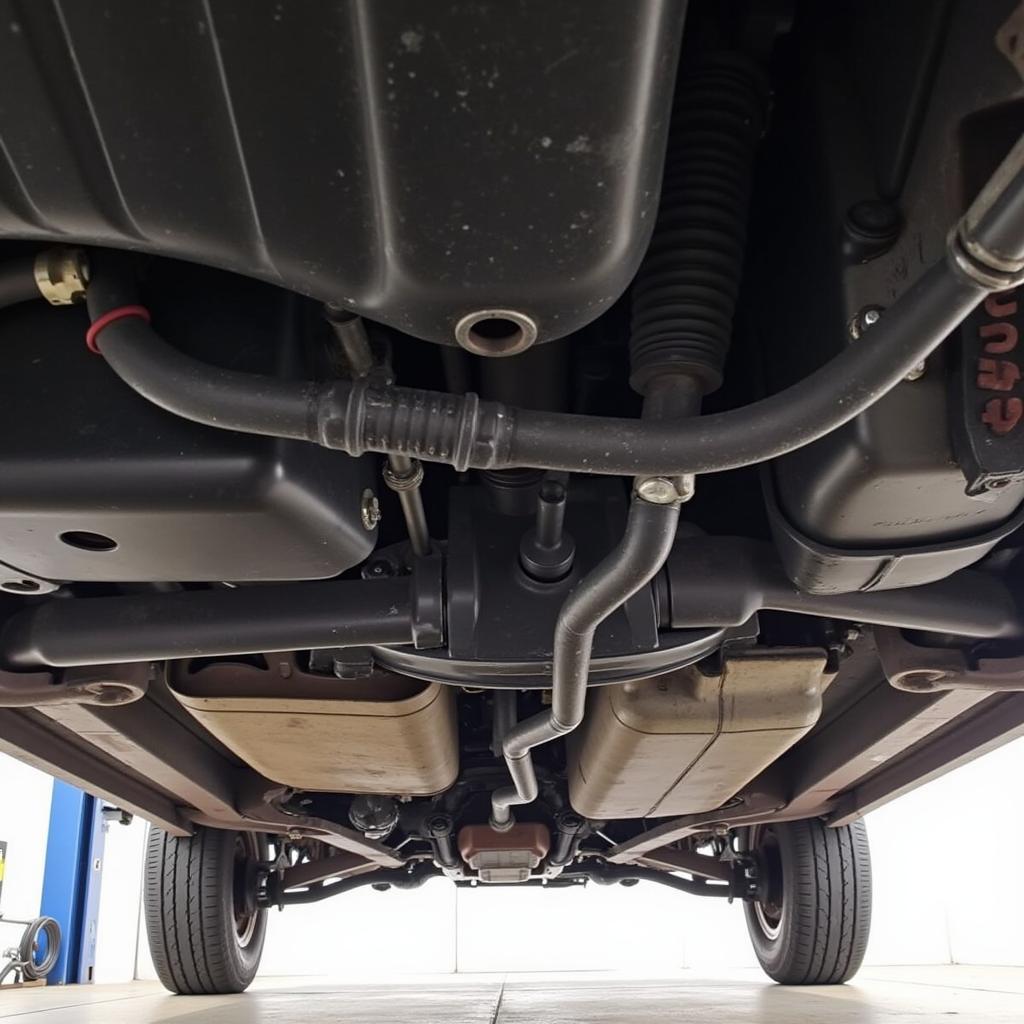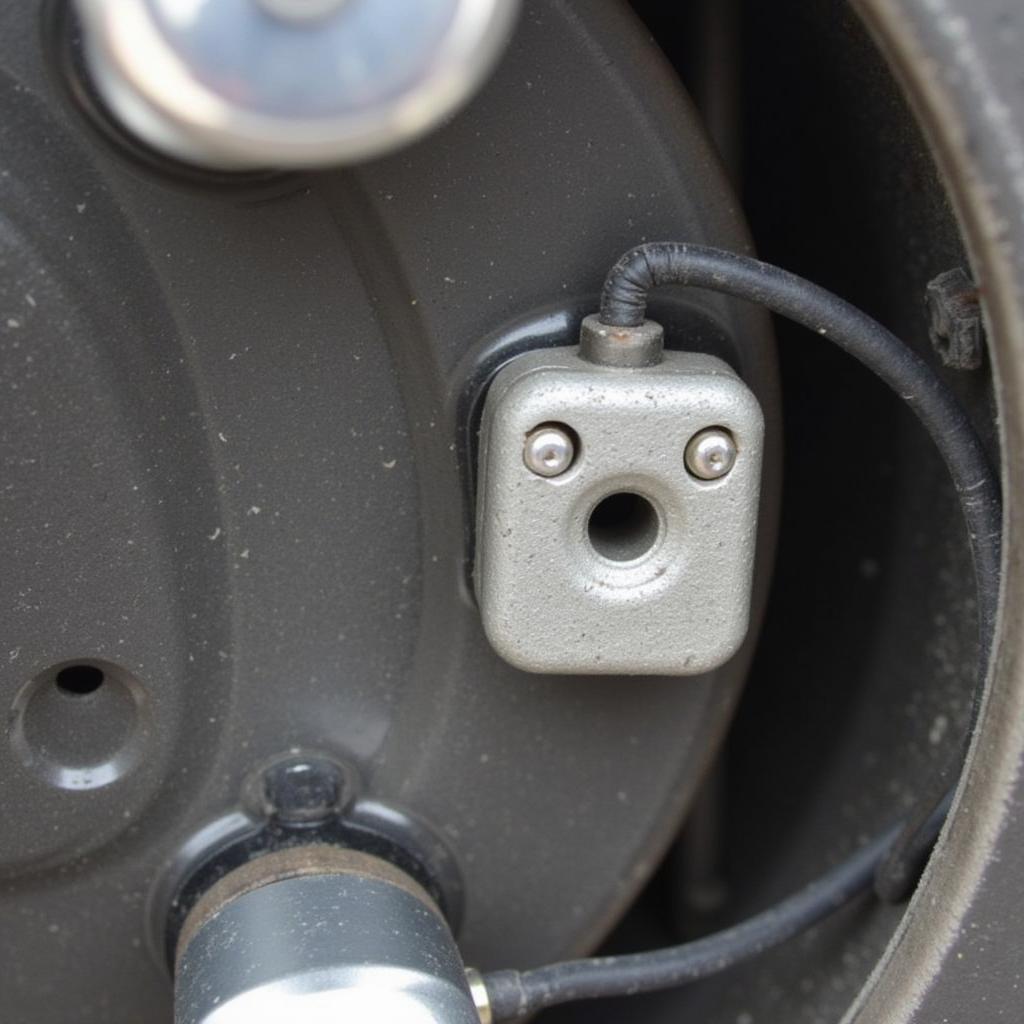The brake fluid warning light on your 2011 VW Golf TDI is a crucial safety indicator that should never be ignored. It usually signals a problem within your braking system, requiring immediate attention. This comprehensive guide will walk you through the common causes of this warning light, how to diagnose the issue, and potential solutions to get you back on the road safely.
Understanding Your VW Golf TDI’s Brake System
Before delving into the causes of a lit brake fluid warning light, it’s beneficial to understand the basics of your car’s braking system. The 2011 VW Golf TDI utilizes a hydraulic system where brake fluid pressure is applied to the calipers when you press the brake pedal. This pressure forces the brake pads against the rotors, slowing or stopping your vehicle.
Common Causes of the Brake Fluid Warning Light
A lit brake fluid warning light usually indicates one of two main issues:
- Low Brake Fluid Level: This is the most common culprit. Brake fluid levels can drop due to leaks in the system or worn-out brake pads.
- Brake Pad Wear: As your brake pads wear down, the brake calipers need to extend further to engage the rotors. This extension requires more brake fluid, leading to a drop in the reservoir level and triggering the warning light.
Diagnosing the Problem
1. Check Your Brake Fluid Level:
- Park your VW Golf TDI on a level surface and engage the parking brake.
- Locate the brake fluid reservoir. Consult your owner’s manual if unsure. It’s typically a translucent plastic container with a black cap.
- Visually inspect the fluid level. It should be between the “MIN” and “MAX” markings on the reservoir.
2. Inspect for Leaks:
- Carefully examine the area around the brake fluid reservoir for any signs of leaks. Look for wet spots or fluid trails.
- Visually inspect the brake lines running along the undercarriage of your car. Look for any wetness, drips, or damaged lines.
 Inspecting the brake lines for leaks in a VW Golf TDI
Inspecting the brake lines for leaks in a VW Golf TDI
Potential Solutions
If the brake fluid level is low:
- Add Brake Fluid: If you find the brake fluid level is low but see no visible leaks, you can carefully top it off with the correct DOT specification brake fluid (check your owner’s manual). However, this is a temporary fix, and you should still schedule a professional inspection as soon as possible to determine the cause of the low fluid level.
If you detect a leak:
- Do Not Drive Your Car: Driving with a brake fluid leak is extremely dangerous.
- Seek Professional Help: Contact a qualified mechanic specializing in VW vehicles to diagnose and repair the leak.
If your brake pads are worn:
-
Replace Your Brake Pads: Worn brake pads not only contribute to a low brake fluid level but also compromise your braking performance. It’s crucial to have them replaced immediately.
Expert Insight from John Miller, ASE Certified Master Technician:
“Never underestimate the importance of regular brake inspections. Catching worn pads early not only prevents further damage to your braking system but also ensures your safety on the road.”
Frequently Asked Questions
1. Can I drive my VW Golf TDI with the brake fluid warning light on?
No, it is highly dangerous to drive with the brake fluid warning light illuminated. This indicates a potential failure in your braking system.
2. How often should I check my brake fluid level?
It’s a good practice to check your brake fluid level at least once a month and more frequently if you notice any changes in your brake pedal feel.
3. How long can I drive with low brake fluid?
You should never drive with low brake fluid. If the level is low, it indicates a leak or worn pads, requiring immediate attention.
4. What type of brake fluid does my 2011 VW Golf TDI use?
Consult your owner’s manual for the correct DOT specification brake fluid. Using the wrong type can damage your braking system.
5. Can I add brake fluid myself?
While you can temporarily top off the brake fluid, it’s best to have a professional diagnose the cause of the low level and address it appropriately.
Conclusion
The brake fluid warning light in your 2011 VW Golf TDI is a critical safety indicator. Understanding its causes and responding promptly can help prevent a potentially dangerous situation. Remember, regular maintenance and prompt attention to warning signs are key to ensuring the optimal performance and safety of your vehicle.

